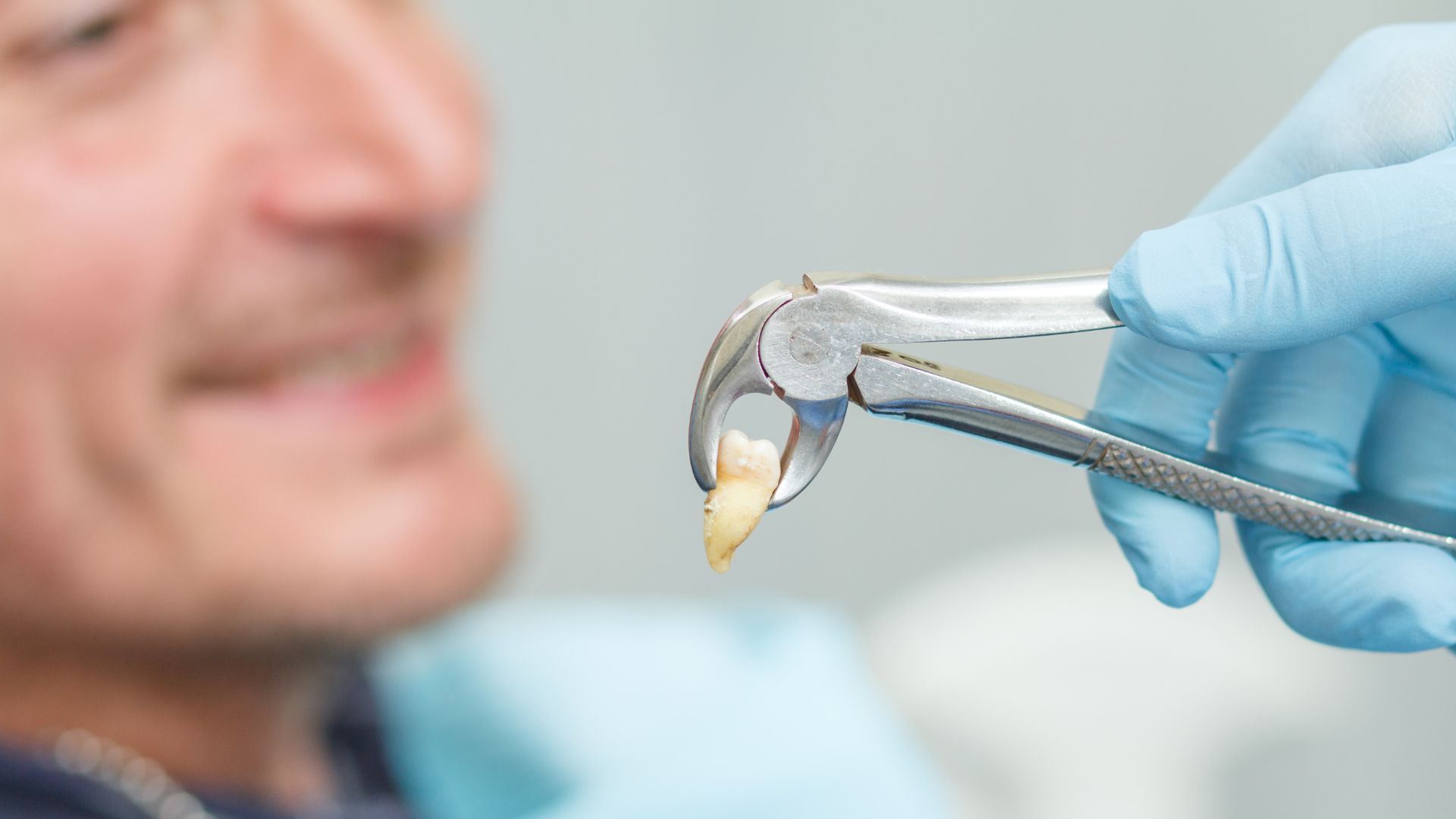

Restore Your Smile, Remove the Pain: Expert Tooth Extractions at Smith Street Dental
At Smith Street Dental in Darwin, we specialize in professional tooth extractions to ensure your oral health and well-being. Our experienced dentists perform this procedure when a tooth is damaged beyond repair or to address various dental conditions. Whether you require a simple or surgical extraction, our team is dedicated to providing safe and pain-free solutions. With our state-of-the-art facilities and personalized approach, you can trust us to restore your smile and enhance your overall dental health.
Our tooth extraction services encompass a range of conditions, including wisdom teeth complications, fractured teeth, and loose or mobile teeth caused by injury or gum disease. Our skilled dentists are experienced in both simple extractions, which are performed on visible teeth under local anesthesia, and surgical extractions for more complex cases. During the procedure, our team ensures your comfort by using specialized instruments and techniques to remove the tooth from its socket gently. If sutures are required, we close the surgical site properly. After the extraction, we provide comprehensive post-treatment care instructions to facilitate healing and minimize discomfort.
Don’t wait any longer to address your dental concerns. Book an appointment with Smith Street Dental today and let our expert team guide you toward optimal oral health through our professional tooth extraction services.
At Smith Street Dental, we prioritize your comfort during tooth extractions. The procedure is performed under local anesthesia, ensuring you won’t feel any pain during the extraction. Our experienced dentists use gentle techniques to minimize discomfort, and we provide post-treatment care instructions to manage any potential discomfort as you heal.
Recovery time can vary depending on the complexity of the extraction and your healing process. Generally, it takes about one to two weeks to recover from a tooth extraction fully. During this time, it’s important to follow our post-treatment care instructions, including proper oral hygiene, eating soft foods, avoiding strenuous activities, and attending any recommended follow-up appointments.
As with any dental procedure, tooth extractions carry some risks. However, our skilled dentists at Smith Street Dental take all necessary precautions to minimize these risks. In rare cases, complications such as infection, excessive bleeding, or damage to nearby structures may occur. We will discuss any potential risks with you before the procedure and provide thorough aftercare instructions to reduce the likelihood of complications.
Immediately after the extraction, it’s essential to avoid eating until the anesthesia wears off completely. Once the numbness subsides, you can start with soft and room-temperature foods. It’s best to avoid hot, spicy, or crunchy foods during the initial healing period. As you recover, you can gradually reintroduce regular foods into your diet, following our post-treatment care guidelines.
The need for a replacement tooth depends on the location and function of the extracted tooth. For visible teeth, such as front teeth, we may recommend a dental implant, bridge, or partial denture to restore aesthetics and function. For wisdom teeth or less visible teeth, a replacement may not be necessary. Our dentists will assess your situation and discuss the appropriate options for tooth replacement, if needed, during your consultation.


Tooth extraction is a procedure where one or more teeth are completely pulled out from the gum socket in the jawbone.
To save a tooth is a dentist’s utmost priority. However, in several conditions where the tooth gets damaged past the point of repair, it requires extraction. Some of these conditions are:
To ensure a safe and smooth procedure, it is crucial for your dentist at Smith Street Dental to know your medical history, medicines or supplements you consume, and if you have/had one of the following:
A few conditions may call for a modified treatment plan or additional medical consultation to get a tooth extracted, such as:
Two main types of tooth extractions are simple extraction and surgical extraction.
A simple dental extraction involves the removal of teeth that are easily accessible and are visible in the mouth. It is carried out under local anesthesia, numbing the tooth and surrounding gum tissue, thus making the procedure pain-free.
A dental surgical extraction is done in cases where the teeth are not easily accessible inside the mouth. It can occur where the tooth might not have erupted completely through the gum. It can also be considered in a fractured tooth where the fracture extends below the gum line.
Treatment planning:
Before your extraction, your dentist at Smith Street Dental will examine and evaluate your condition and frame a diagnosis and treatment plan.
Anesthesia:
The dentist will give local anesthesia to numb the tooth and surrounding tissues, making the procedure pain-free.
Your dentist will lift and loosen the tooth using special dental instruments called elevators and forceps.
Once the tooth is loosed up adequately, it will be lifted from its socket and removed from your mouth.
If it is a surgical extraction, such as in cases of wisdom teeth, your dentist will place sutures to close the surgical site. The dentist will place a gauze piece and ask you to bite on it for 45-60 minutes.
Wisdom teeth, or third molars, usually erupt in the late teens or early twenties, the time by which all the teeth secure their places in the jaw. When there is no or lack of space for the wisdom tooth to erupt, it may get stuck in the jawbone or try to erupt abnormally. The wisdom tooth may cause dental problems, and your dentist at Smith Street Dental may ask you to extract them.
In a fractured tooth, the treatment modality depends on the extent of the fracture. Extraction is considered if the fracture extends beyond the gum line or involves the tooth’s root.
Injury, trauma, or severe gum disease can cause the tooth to loosen. The treatment of a mobile tooth depends on the extent of mobility.
To achieve appropriate healing, you must follow the below-mentioned instructions and avoid any untoward side effects.
© Copyright 2023 | Smith Street Dental | All Rights Reserved | Powered by Likhyani Healthcare Solutions